
Why would companies that manufacture phones, like Sony or Apple, want to get into the electric vehicle business? A better question to ask is, “why wouldn’t they?” While electric vehicles have only just begun to corner a small portion of the automobile market, the upside of prospective growth is tremendous. As vehicles become more reliant on batteries, wiring, and programming in lieu of combustion engines, companies like Sony and Apple feel they have enough knowledge and expertise to take a crack at an electric vehicle of their own.
Why big tech wants to add EVs to its repertoire
As previously mentioned, electric vehicles have solidified themselves as the future of transportation in order to combat global warming. Thanks to manufacturers like Tesla, whose market cap valuation recently topped $850 billion, traditional ICE automakers are following suit and going electric. Furthermore, hundreds of EV startups are seeking funding to become the next Tesla.
So why would electronics companies like Sony or Apple want to try to compete in this flooding market where only a select few have become profitable? The leap into electric vehicles isn’t as wide of a gap as you might think.
One major reason addressed above is the potential of the market. Electric vehicles will not only continue to grow exponentially amongst consumers, but in public transportation as well. Just recently, President Biden ordered the United States’ entire federal fleet of vehicles to go electric. What companies will manufacturer these federal vehicles is still uncertain, but there is no doubt a growing demand for quality EVs.
Electronics companies are already involved in electric vehicles
Another reason why this move makes sense is the role many of these tech companies have already had in the automotive space. For decades, electronics companies have designed and manufactured various components either for or adjacent to automotive vehicles. This includes audio systems, console interfaces, and other control systems.
Sony, for example, produces televisions, gaming consoles, and even feature films. Adding electric vehicles to its menu offers further business opportunity and revenue, but also makes sense from a logistical manufacturing standpoint. If you’re already providing pie makers with a majority of their ingredients, why not start making your own pies?

Venturing into electric vehicles is easier than in the past
Part of the appeal for large companies like Baidu in China is the development of electric vehicles themselves. For an electronics company to try to attempt its own ICE vehicle would be a daunting task. It’s also not the wisest business move. However, EVs run on lithium-ion batteries, much like nearly every mobile device we carry with us everywhere. Mobile devices that Apple and Foxconn already manufacture.
Furthermore, electric motors are much more familiar territory for electronics conglomerates, not to mention these powertrains are significantly less complicated than an internal combustion engine. With companies like Tesla integrating its mobile app to control the vehicle, as well as full-blown computers and gaming consoles within it, EVs have come to share much of the same DNA as a mobile phone.
Say you have an iPhone or a Sony phone, and you drive a new electric vehicle from the same company. Your phone in your pocket communicates with your sedan as you get close, starts the vehicle, and unlocks the door for you before you even touch it. You’re currently listening to your favorite podcast and as you sit and buckle up, your audio automatically switches to your car speakers. This is just a fictional example, but the possibilities are limitless. The level of seamlessness these large tech companies could provide to consumers is quite substantial.
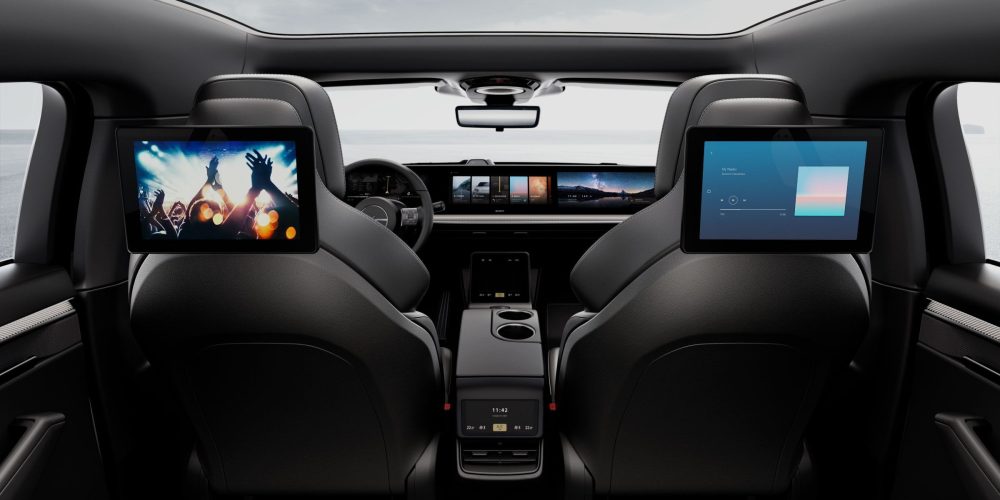
Electric vehicle startups are looking for funding
One final reason why the expansion to electric vehicles for companies like Apple and Sony makes sense – the bountiful pool of companies with a jump start on manufacturing that lack funding. In the last couple years alone, the market has seen EV startups like Fisker, Nikola, and Lordstown Motors merge with large, publicly-traded automotive companies to garner capital.
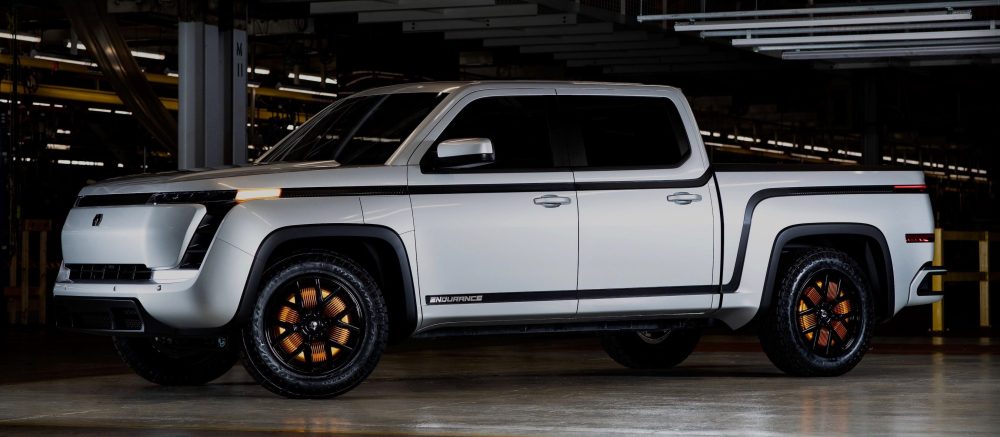
Booming tech companies can use their vast funds to invest in startups too, and there is no shortage of equipment manufacturers to choose from. The largest obstacle in the way of producing vehicles at mass volume is the exorbitant amount of cheddar required to build the proper facilities and assembly lines. For example, Tesla’s expansion of its Model 3 sedan nearly bankrupted the company due to the chokehold that delays in scaling production put on cashflow. Large electronics companies can provide that upfront capital. They have actually already begun, as you will see below.
Here are a few major tech companies dipping their toe in the electric vehicle space to various degrees.
Sony’s first electric vehicle
Let’s start with the company that has already produced its first electric vehicle, albeit it is a concept, Sony. This Japanese tech Megazord announced its first concept vehicle, the Vision-S at the 2020 Consumer Electronics Show (CES) in Las Vegas. In 2021, at (a virtual) CES, Sony updated the world to its progress with the Vision-S.
According to Sony Corp.’s President and CEO Kenichiro Yoshida, the company is continuing to develop the Vision-S prototype for safety, security, entertainment, and adaptability. Last December, Sony began public road testing in Austria for technical evaluation.
We still have zero details as to if, or when the Vision-S prototype might reach production. Nor do we know how much the Sony EV might cost, what range it will offer, or really any other specs for that matter. At first glance, the Vision-S looks like it can hold its own as an EV. The interior photos alone offer a lot of prospects for immersive entertainment for all passengers. For now, however, the Vision-S remains a concept yet to be proven. Keep an eye on Electrek’s Vision-S guide for further updates as they trickle in.
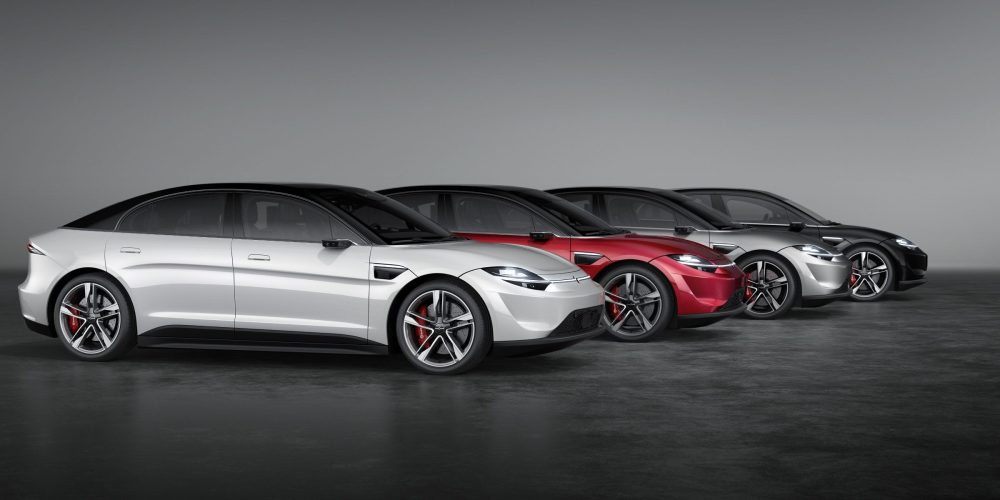
Apple’s electric vehicle
Like Sony, Apple’s potential electric vehicle makes a lot of sense from a business standpoint. However, while Sony has revealed a tangible concept that is already testing roads, confirmed details of an Apple car leave much to be desired.
Apple’s rumored electric vehicle, known by codename “Project Titan” was birthed as a mere conversation amongst Apple execs back in 2007. The electronics juggernaut decided to focus on a new product called the iPhone instead (you may have heard of it). With booming sales around innovations like the iPod, Macbook, and Apple Watch, the company shelved the car project… mostly.
In early 2016, Apple had reportedly registered several domain names including Project Titan. Furthermore, it hired automotive developers and executives from other companies, in addition to buying up real estate in areas where other vehicles were being manufactured. At the same time, Apple began developing and testing its own autonomous driving technologies.
The latest Apple car news
Naturally, this re-stoked the fire of rumor and innuendo surrounding an electric vehicle from Apple. Still, no real news had come of it. That is until reports emerged last December about plans by Apple to continue developing autonomous driving technology. It now hopes to produce its own passenger vehicle to showcase by 2024. Most recently, Apple admitted to holding talks with EV startup Canoo, about developing its own car. However, the companies stopped negotiations after Canoo entered the NASDAQ stock exchange last December.
That’s really all we know so far. Truthfully, Apple could still pull the plug on the entire project and never release an electric vehicle. Or it could re-narrow its scope toward autonomous driving software to license to other automakers. Time will tell. For now, the internet is left to daydream about what an Apple EV would look like, or what it may cost. Most importantly, whether or not it will come with a charging cable. In the meantime, bookmark Electrek’s Apple Car guide to stay in the know.
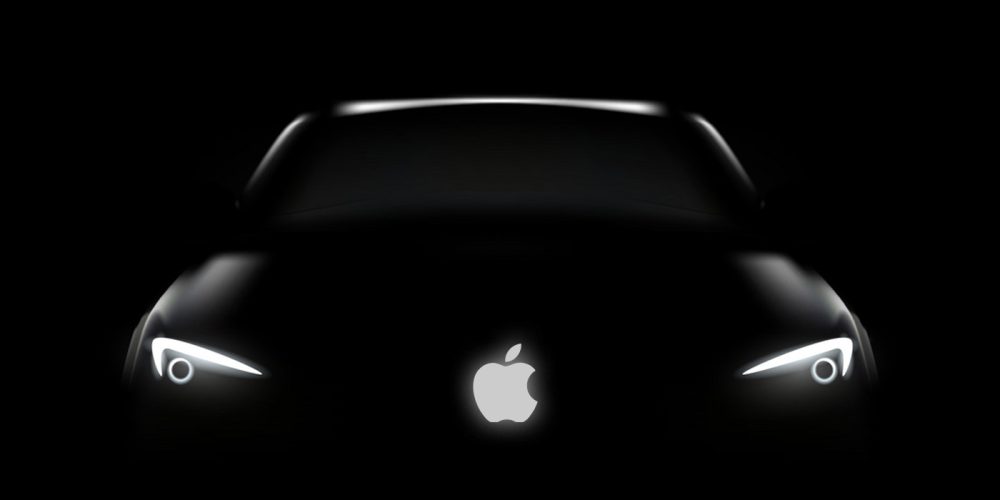
Foxconn
Foxconn might not be a household name compared to the likes of Apple and Sony. However, it remains a major player in electronics technology, and one of the more recent companies to venture into electric vehicles. In fact, Taiwan-based Foxconn Technologies Group is the third-largest tech company on the planet by revenue. It trails behind only Samsung and Apple.
Speaking of Apple, Foxconn manufactures and assembles the iPhone and iPad as well as the Playstation from Sony. Even if you haven’t heard of Foxconn, you’ve definitely used many of their products. The newest product Foxconn is developing is robotic dancing shoes… kidding, it’s obviously electric vehicles.
Last year, Foxconn announced a partnership with Fiat Chrysler to jointly manufacture electric vehicles for the Chinese market. This added to Foxconn’s previous investments in electric rideshare companies and battery manufacturers like CATL.
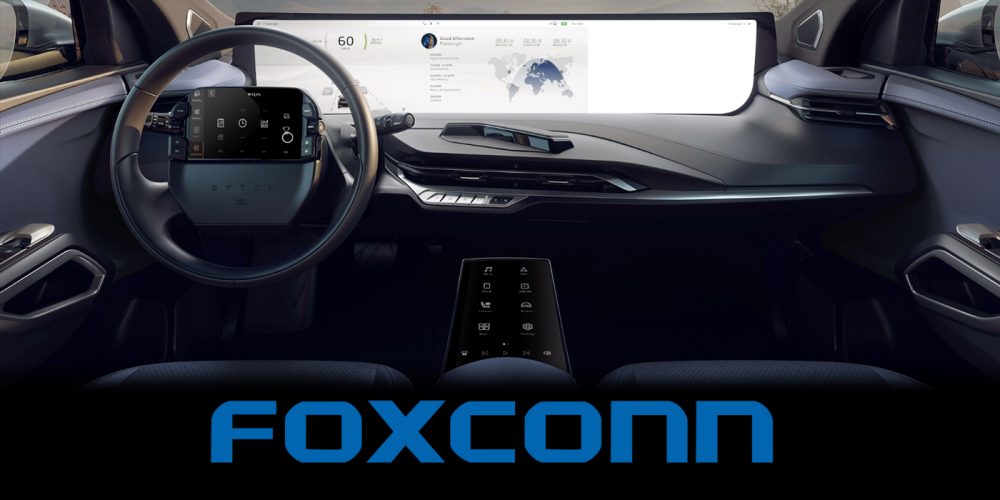
Geely and Byton
Foxconn also formed a joint venture with Chinese automaker Zhejiang Geely Holding Group. The two agreed to work together with a focus on electrification, connectivity, and autonomous driving in addition to rideshare technologies. This is an example of one of the umbrella deals mentioned at the beginning of this post. Geely brings automotive experience in design, engineering, and manufacturing, while Foxconn offers experience in manufacturing and communication technology… plus capital.
On top of that, Foxconn also announced plans to help a struggling Chinese EV startup called Byton build its M-Byte SUV. Foxconn’s plan is to help Byton ramp up mass production of its first EV model. This is after it had to cease operations due to the COVID-19 pandemic. With Foxconn’s investment, the two plan to bring the M-Byte to market within the year.
Foxconn is laying chips upon various numbers on the EV roulette table, hoping something hits big. Unlike Sony focusing on one electric vehicle, or Apple maybe developing one or maybe not…Foxconn is pursuing tie-ups with multiple car companies that cannot afford to develop their own EVs. A major manufacturer like Foxconn could leverage its long relationships with companies like Apple or Sony. Then use those relationships to eventually make EVs for them.
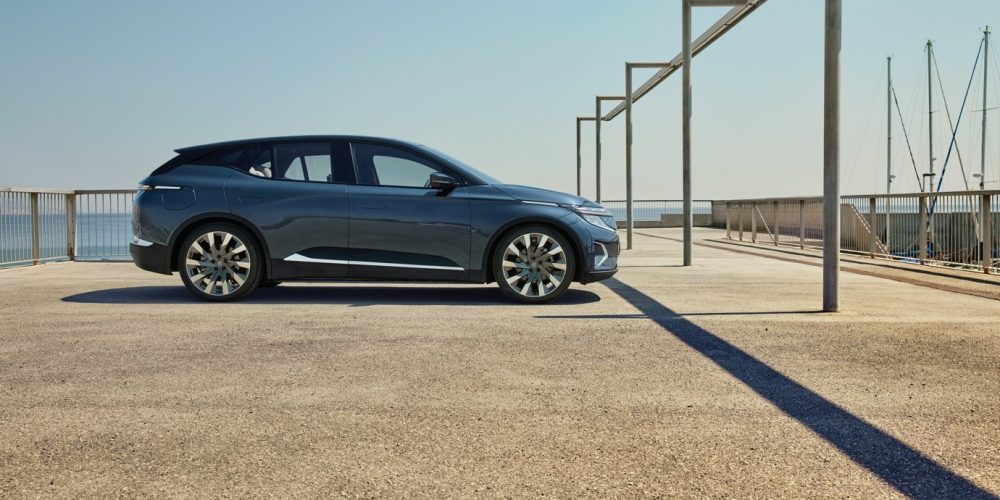
Baidu
Baidu is a Chinese search engine giant, focused on expanding toward much more. New media platforms from fellow Chinese companies like ByteDance are offering their own search feature. As a result, the share of advertising revenue amongst traditional search engines has begun to diminish.
This has led Baidu to turn its focus to new revenue streams. This includes artificial intelligence, mapping services, and you guessed it, electric vehicles. Baidu has focused tirelessly on autonomous driving technologies for several years. In fact, its Apollo ecosystem has garnered over a hundred partnerships with various manufactures and suppliers. This includes Toyota, Ford, and Volkswagen. Furthermore, the internet company has been dabbling in robotaxis using its Apollo software.
In early 2021, Baidu announced it was expanding from software development into physical EV production. The company joined forces with Geely (sound familiar?) to produce electric vehicles. Similar to the Foxconn deal, Baidu will provide its technologies like Apollo and Baidu Maps. Geely will handle the vehicle design, R&D, manufacturing, sales, and service.
This joint venture is still only weeks old. There aren’t further details as to what the company will be called or if multiple vehicles will be developed at this point. Geely is clearly busy with multiple partnerships worldwide. It’s tough to say how much bandwidth the automaker has and what its top priorities are. Trust that Electrek will keep you updated as Geely moves forward in production with Baidu, Foxconn, and anyone else who wants to join the party.

Electric Vehicles by Sony, Apple, or Baidu make sense
Hopefully at this point, you’ve gathered better insight as to why it makes sense for companies like Sony, Apple, and Baidu to try their hand at electric vehicles. Furthermore, it’s easy to see why we will more than likely see more of these trends moving forward. It’s a safe bet that the electric vehicle market will only grow at this point.
Tesla has already achieved proof of concept, so anticipate an “all-aboard” mentality for EV startups attempting to follow suit. Major tech companies will provide the funding, technology, and other resources to help EV rivals reach mass production. In return, they hope to gain a share of the revenue. This is already happening in Asia with companies like Foxconn and Alibaba and is sure to gain steam worldwide.
Consumers have very little to lose when it comes to new EV expansion. Competition fuels powers innovation… or something like that.
Subscribe to Electrek on YouTube for exclusive videos and subscribe to the podcast.
Author: Scooter Doll
Source: Electrek



